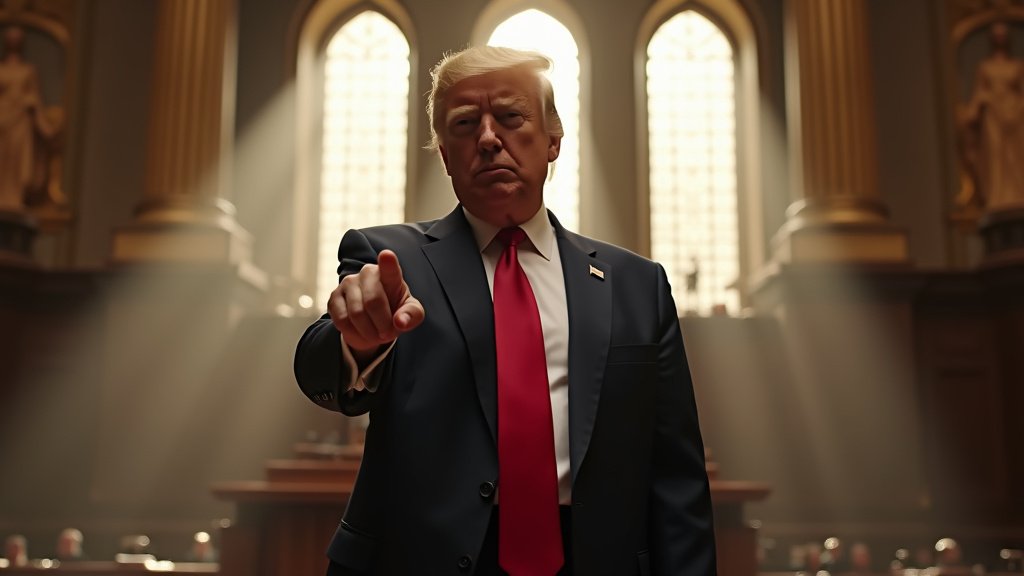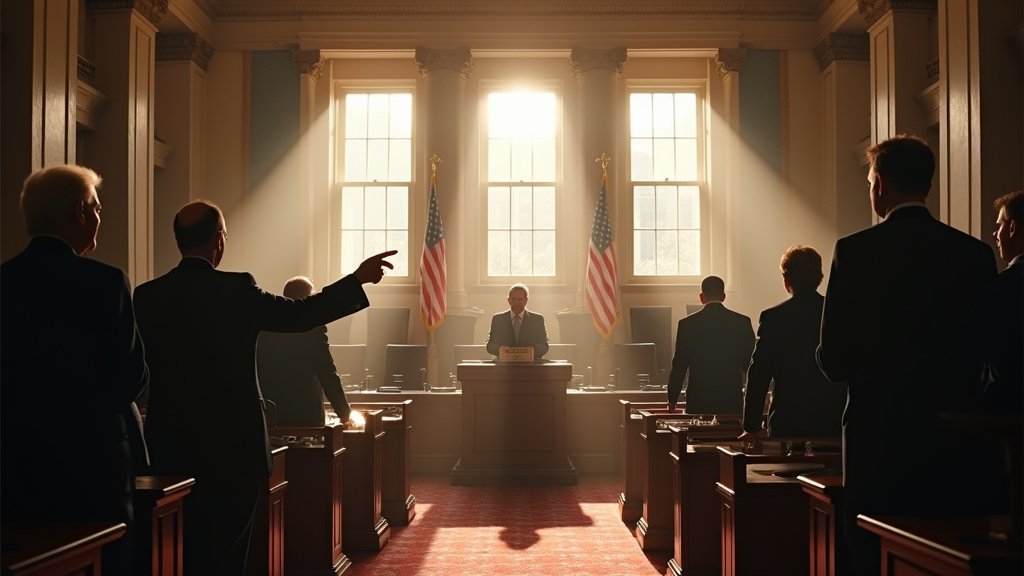Washington D.C. – The Voice of America (VOA), a cornerstone of United States international broadcasting for nearly eight decades, has reportedly gone off the air following an executive order issued by President Donald Trump. The move, which critics contend is an unprecedented attack on the press and potentially a favor to international dictatorships, has sparked widespread concern regarding the future of independent news dissemination to regions with restricted media.
The executive order is designed to significantly reduce the operational footprint and staffing of the U.S. Agency for Global Media (USAGM), the independent federal agency that oversees VOA and other U.S.-funded civilian international broadcasters. As a direct consequence of this directive, approximately 1,300 global staffers associated with VOA have reportedly been placed on leave, signaling a dramatic scaling back of the network’s operations.
A Legacy of Countering Disinformation
Established in 1942 during the height of World War II, VOA was created with a singular, critical purpose: to counter Axis disinformation campaigns and deliver accurate, factual news to audiences in enemy and occupied territories. Throughout the Cold War and in subsequent decades, it cemented its role as a crucial source of independent news worldwide, particularly vital in areas where local media is controlled or suppressed by authoritarian regimes.
The network’s journalistic integrity is underpinned by its 1976 charter, a congressional act that mandates VOA deliver news that is accurate, objective, and comprehensive. Further reinforcing its independence, a 1994 firewall was established, specifically intended to prevent government interference in VOA’s editorial decisions and day-to-day broadcasting.
The Executive Order’s Impact
The recent executive order targeting the USAGM and, by extension, VOA, represents a direct challenge to the established structure and perceived independence of the network. While the specific language of the order focuses on administrative restructuring and resource allocation within the broader agency, its immediate practical effect appears to have been the cessation of VOA’s traditional broadcasts.
Reports indicate that following the implementation of the executive order, VOA’s airwaves, historically filled with news, analysis, and cultural programming, have reportedly gone offline. Listeners and observers note that these broadcasts have been replaced by only music or silence, effectively silencing the voice that has for generations provided an alternative perspective to state-controlled media in many parts of the world.
Concerns for Press Freedom and Global Influence
The immediate cessation of broadcasts and the significant staff reductions have drawn sharp criticism. Commentators and editorial boards, reflecting on the historical role and statutory mandates of VOA, characterize this action as a direct challenge to the spirit of the First Amendment – which protects freedom of the press – despite VOA’s unique position as a state-funded entity operating under a journalistic charter. They argue that the timing and nature of the order appear designed to curb the agency’s independent voice.
Furthermore, the decision is viewed by some as a diminishment of U.S. global influence. VOA has historically served as a public diplomacy tool, projecting American values of free expression and independent journalism abroad. Silencing this platform is seen by critics as abandoning this role and potentially ceding ground to hostile narratives in the international information space.
The action also raises questions about the independence of government-funded media in a democratic society and the extent to which political administrations can or should interfere with news organizations, even those supported by public funds but operating under a strict journalistic charter and firewall.
The future status of Voice of America and its ability to fulfill its mandated mission of providing accurate and objective news to global audiences remains uncertain as the implications of the executive order continue to unfold.










